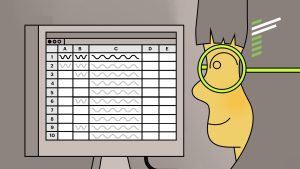The current state of healthcare globally is complex. The COVID-19 pandemic has had a devastating impact on global health, laying bare the inadequacies of health systems. Health services in all regions are struggling to both tackle COVID-19 and provide people with vital care. The World Health Organization (WHO) is working with countries to improve their preparedness for pandemics and health emergencies, and to ensure that countries work together.
At the same time, the healthcare industry has also seen significant technological advancements, such as the use of telemedicine, artificial intelligence, and electronic health records, which have improved patient outcomes and efficiency in healthcare delivery.
Additionally, digital transformation of healthcare, such as the use of remote 5G technology, AI and wearables, can help offset issues such as lack of access to basic services and staff shortages.
In this article, we will look at some of these new technological advancements in detail.
The new technologies helping us live better
There have been several new technological advancements in healthcare in recent years that are revolutionizing the way healthcare is delivered. Here are a few examples:
- Artificial Intelligence (AI)
AI has the potential to transform healthcare by improving patient outcomes, reducing costs, and increasing efficiency. AI algorithms can be used to analyse large datasets to identify patterns and predict health outcomes, enabling healthcare providers to make more informed decisions. - Telemedicine
Telemedicine uses telecommunication and digital technologies to provide remote clinical healthcare services. This technology has become increasingly important during the COVID-19 pandemic as it has allowed patients to receive medical attention from the comfort of their homes. - Electronic Health Records (EHRs)
Electronic health records allow healthcare providers to store and share patient information digitally, improving the quality of care by providing access to complete and accurate information about a patient’s medical history. - Wearable devices
Wearable devices such as smartwatches and fitness trackers are becoming increasingly popular and can provide valuable data to healthcare providers. This data can be used to monitor patients remotely and provide insights into their health and wellbeing. - 3D Printing
3D printing technology is being used to create custom medical implants and prosthetics, making it possible to create precise and personalized medical devices that can be tailored to an individual’s needs.
Solving potential bottlenecks in the horizon
These new technologies hope to address several bottlenecks in healthcare. For example, wearable technologies can help with remote monitoring of patients and improve access to healthcare for those in remote or underserved areas. Telemedicine can also improve access to healthcare and reduce the need for in-person visits.
Remote monitoring tools can help with managing chronic conditions and reducing hospital readmissions. Genome sequencing can help with personalized medicine and more accurate diagnoses. Virtual reality can help with training surgeons and planning surgeries.
The Internet of Medical Things (IoMT) can help with collecting and analysing data to improve patient outcomes. An artificial pancreas can help with managing diabetes. These technologies aim to improve access to healthcare, reduce costs, and improve patient outcomes.
Is AI the future of healthcare?
Mordor Intelligence, a leading market intelligence and advisory firm forecasts health expenditure will outstrip GDP growth over the next 15 years. Health spending per capita will grow at an average annual rate of 2.7% and will reach 10.2% of GDP by 2030.
AI has the potential to improve patient outcomes, reduce costs, and increase efficiency. AI can be used for tasks such as analysing medical images, predicting patient outcomes, and developing personalized treatment plans. It can also help with administrative tasks such as scheduling and managing electronic health records. AI is already being used in many areas of healthcare and its use is expected to continue to grow.
Some of the potential ways that AI is set to transform healthcare include:
- Precision medicine
AI algorithms can analyse large amounts of patient data, including genetic and clinical data, to identify patterns and make predictions about a patient’s health outcomes. This can help healthcare providers tailor treatments to individual patients, improving the effectiveness of treatment and reducing side effects. - Diagnosis and treatment
AI can be used to analyse medical images, such as X-rays and MRIs, to help healthcare providers make more accurate diagnoses and develop personalized treatment plans. - Drug development
AI can be used to identify potential drug candidates more efficiently, reducing the time and cost of drug development. - Operational efficiency
AI can be used to optimize hospital operations, such as staffing and scheduling, reducing costs and improving patient outcomes.
By 2025, artificial intelligence is expected to encroach into healthcare in such a way that electronic records, wearable sensors, the patients’ biological layers, and environmental sensor data will continuously be assessed against an entire corpus of medical literature to prepare a patient to prevent a condition. It won’t be about treating the diseases but preventing them.
However, there are also some challenges associated with the use of AI in healthcare, including ethical and regulatory issues, data privacy and security concerns, and the need for appropriate training and education of healthcare providers.
Preparing for a new era of healthcare
The future of healthcare will be patient-centred, emphasising the creation of value for patients rather than volume. Big data, artificial intelligence, and smart data management will play key roles here, powering the technologies that improve quality of care, accelerate patient turnaround times, and reduce operational costs.
However, a holistic approach among healthcare providers will also be essential, one that is powered by a collaborative network that promotes the integration of skills and competencies, as well as the ability to develop highly effective cross-functional teams for continuous improvement.
If you would like to learn more about how we can help you prepare for the future of healthcare, please feel free to get in touch with us.










